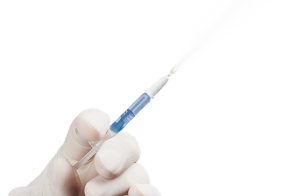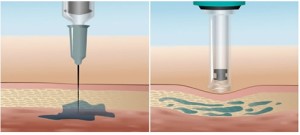Dental fear and dental phobia have been affecting countless lives in the past years. No wonder these illnesses belong in the most prevalent and perilous dental problems experienced both by men and women. Dentists and patients can categorize this fear. Although this depends in every case, dental fear and phobia induce similar results which made them as one of the largest dilemmas in the world.
Anxious patients can determine their fear. Some of them experience uneasiness just by seeing their dentist while some find it extremely difficult to finish their session because of the sharp objects seen. There are also dental fear cases wherein people experience fear whenever they hear the drilling sound. Regardless of what brings you into the verge of discomfort, dental problems like dental fear and phobia require immediate dental consultation. Dental patients will realize how dentistry has turned into a modernized field. Dentistry has developed treatments and tools that promote comfort and safety to patients specifically when dealing with sensitive people, like anxious clients.
One of dental technology’s advanced developments is the needle-free anesthetic. Otherwise known as electronic anesthesia, needle-free anesthesia is the perfect and most ideal alternative for people who dislike painful injections. This is very beneficial when having a dental filling or cleaning. There are several brand types of electronic anesthesia you can choose. TENS or the Transcutaneous Electrical Nerve Stimulation is the commonest and widely used type of them. TENS works with a system that allows the patient to control the pain relief level. Through a handheld unit fastened to a stimulation pad, they can maneuver the pain relief administered to them while having their dental therapy. TENS has a low-voltage electrical current. This helps your nerves deliver a signal to the brain when pain takes place. Dentists highly suggest TENS especially to fearful patients. Aside from involving no needles, this type of anesthesia has no after effects. Therefore, you won’t experience adverse reactions of the sedatives given to you.
 Followed by TENS, dentists identified Subgingival anesthesia as the second most utilized anesthetic. Endodontists usually use this every time they perform an SRP treatment to alleviate dental anxiety. The scaling and root planing procedure is a dental cleaning type of procedure delivered to those who require a deep cleaning process. Similar with TENS, Subgingival anesthesia comes with no needles. Patients who detest needles and other sharp or pointy objects can make the most of this local anesthetic type. Other needle-free anesthesia types that may fit your taste are Oraqix, Cyrogenic anesthesia and GumEase.
Followed by TENS, dentists identified Subgingival anesthesia as the second most utilized anesthetic. Endodontists usually use this every time they perform an SRP treatment to alleviate dental anxiety. The scaling and root planing procedure is a dental cleaning type of procedure delivered to those who require a deep cleaning process. Similar with TENS, Subgingival anesthesia comes with no needles. Patients who detest needles and other sharp or pointy objects can make the most of this local anesthetic type. Other needle-free anesthesia types that may fit your taste are Oraqix, Cyrogenic anesthesia and GumEase.
There are different local anesthetics offered today. The most ideal type for you will depend on your case and your dentist’s approval. Only your dentist can provide the suggested anesthetic. Avoid getting over-the-counter anesthesia, if possible. Always remember that only your dentist can determine your case’s extent and the type of anesthesia you need along with its sedation level.
Anxious patients who lost their hopes for pain-free dental treatments can now relish the different needle-free local anesthetics. Just be sure to call the 24 hour dental emergency hotline to find the ideal dentist.

